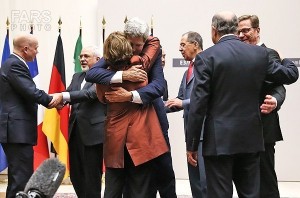 Politicians should not run foreign policy by polls. Voters often†hold contradictory views (e.g. donít tolerate weapons of mass destruction, but donít act against Syrian President Bashar al-Assad). Moreover, foreign policy is not central to most peopleís lives and, it is fair to say, they take less interest in the subject.
Politicians should not run foreign policy by polls. Voters often†hold contradictory views (e.g. donít tolerate weapons of mass destruction, but donít act against Syrian President Bashar al-Assad). Moreover, foreign policy is not central to most peopleís lives and, it is fair to say, they take less interest in the subject.For this reason, leadership is particularly important when it comes to informing and rallying the public in support of national security objectives. The president has a lot to do ó both positive and negative ó in shaping the publicís willingness to sacrifice for sometimes indirect national security benefits.
Therefore, it is significant that the public, despite the administrationís efforts to appease Iran, remains uncomfortable with his approach.†USA Today reports:
The White House and Iran face an uphill selling job to convince Americans to embrace the interim nuclear pact negotiated with Tehran last month, a USA TODAY/Pew Research Center Poll finds.
In the survey, taken Tuesday through Sunday, 32% approve of the agreement and 43% disapprove. One in four either refuse to answer or say they donít know enough to have an opinion.
By more than 2-1, 62%-29%, those who have heard something about the accord say Iranian leaders arenít serious about addressing international concerns about their countryís nuclear program.
The American people remember the hostage crisis and understand all too well that Iran is out to eradicate Israel. They may be ďwar weary,Ē but they are not suckers, and they know enough to be wary. The partisan breakdown is interesting: ďDemocrats were the most supportive of the agreement: By 50%-27%, they approved.† Republicans overwhelmingly opposed it ó† 14% approved, 58% disapproved ó and 72% of Tea Party Republicans disapproved. Independents were divided 29%-47%.Ē The lackluster support even from Democrats reveals a limit to their partisan loyalty to the president. Republican and independent aversion is in line with those groupsí support more generally for the Jewish state.
So what does this mean? To begin with, the presidentís decline in credibility is not limited to domestic policy. The lack of public support and his ineffectiveness in shifting public opinion suggest that lawmakers may be emboldened to follow their conscience and good sense. Congress is traditionally closer to public opinion on foreign policy (e.g. sanctions against South Africa in the 1980s, anti-communism in the Cold War). So critics of the deal will and should focus their efforts on Congress, which could prevent a rotten deal legitimizing Iranís nuclear weapons program.
Iranís threats to call off the ďdealĒ (not actually concluded) if Congress passes sanctions contingent on Iranís noncompliance or refusal to enter into a final deal are entirely predictable. Iran has figured out it can ďplayĒ the Obama administration and threaten the collapse of the talks when we displease the mullahs. (Hence the folly of ďcontainmentĒ even before Iran has a bomb.) Congress now needs to make clear neither the American people nor their elected lawmakers will be blackmailed.
By The Washington Post†
The Iran Project is not responsible for the content of quoted articles.










